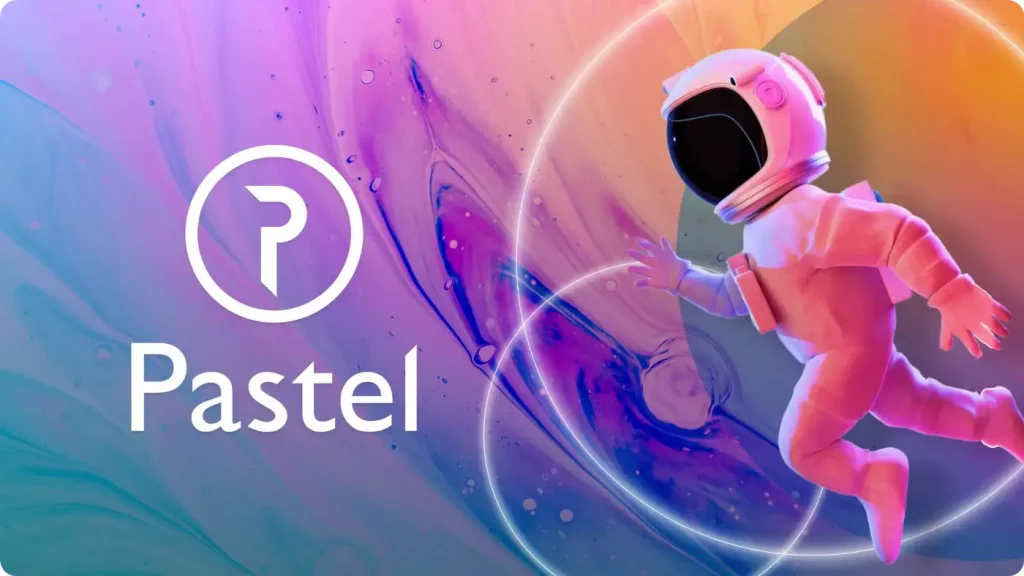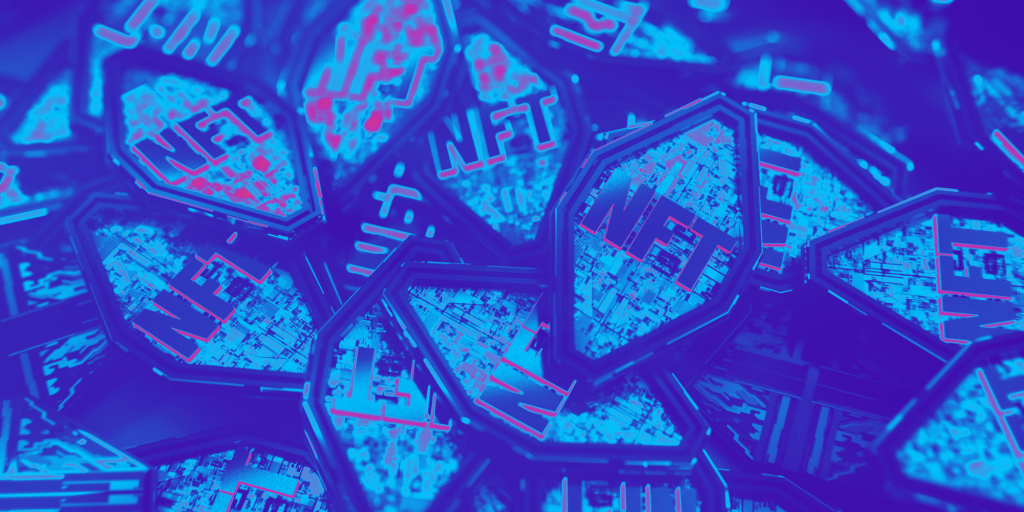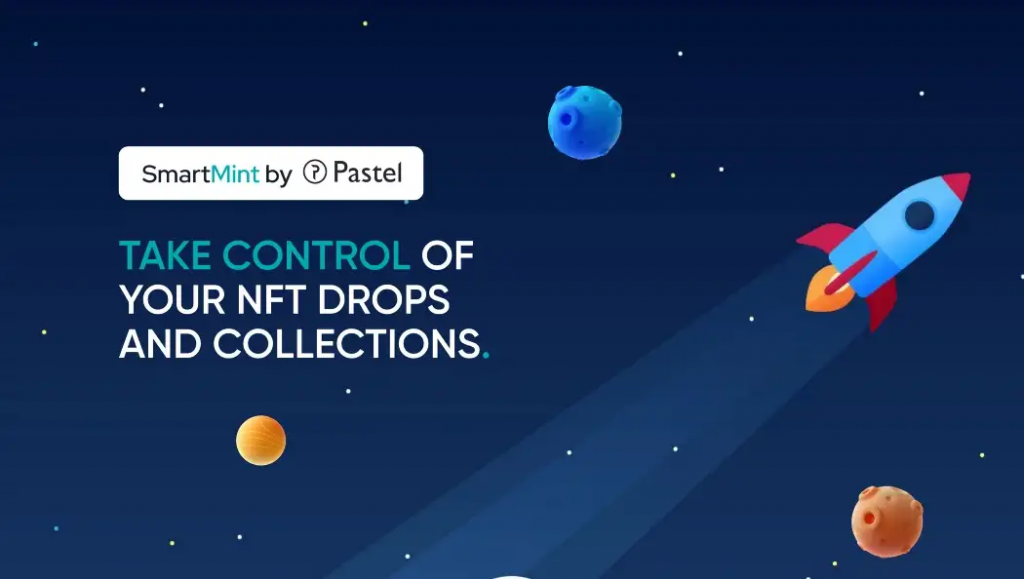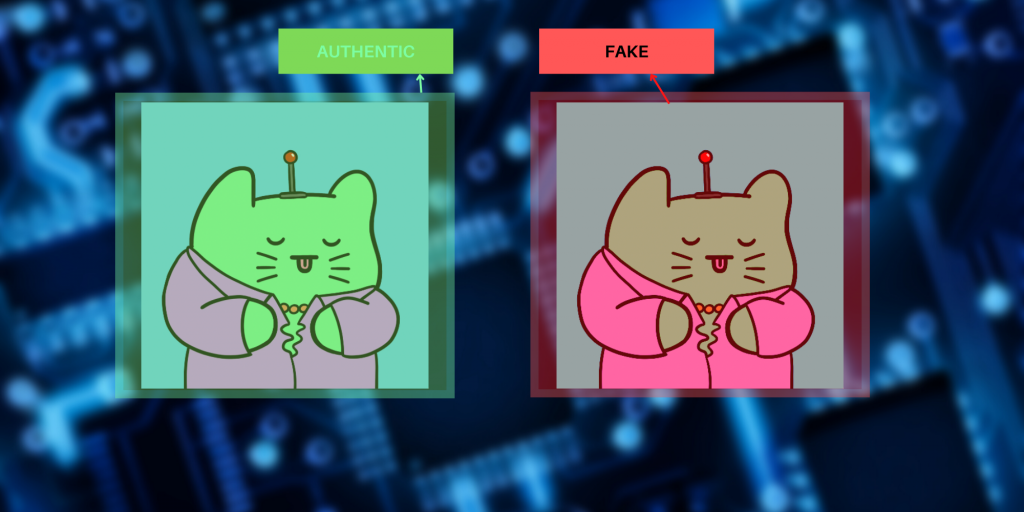NFTs, wouldn’t exist without smart contracts, and digital agreements written with computer code and deployed on a blockchain. Their main function is to execute one or multiple actions if conditions are met, often following simple “if/when-then†statements, e.g., if X is true, then Y will happen.Â
These programs automate execution, and workflow, and streamline the outcome of an agreement between one or multiple parties without the need for an intermediary. These actions, for example, could be the transfer of funds from one wallet to another, storing an NFT, locking deposited funds into a liquidity pool, and more
NFT smart contracts have an important role in keeping the NFT ecosystem healthy and honest Some of their most important functions include handling royalties, ensuring the NFT is unique and non-replicable, verifying ownership rights, and enabling access to exclusive NFT merchandise or events (NFT projects usually throw around exclusive benefits to those who buy a specific NFT from their collection).
What are NFT Smart Contracts?
The versatility of NFT smart contracts plays a key role in the development of the metaverse and the Web3 industry.
NFT smart contracts are smart contracts specifically designed to create the relatively complex requirements of NFTs, such as provenance, non-fungibility, authenticity, and the hosting on a blockchain network.
First, let’s have a quick refresher on what a smart contract is. Then we’ll explore how they’re used in the NFT world.
Smart Contracts: Benefits and Main Functions
Smart contracts are being applied to a wide variety of industries –home sales, supply chain, data sharing between multiple institutions, digital identity, banking —the list is long.
For example, blockchain supply chain solutions counter the typical setbacks within this industry (data disparity, labor shortage, reliable shipping source, etc.) using smart contracts to automate the shipping process by keeping track of items, administrating and structuring important data, and performing specific tasks if conditions are met.
Some of the main benefits of smart contracts are:
- Transparency and trust: they facilitate transactions for multiple users in a network without them having to know or trust each other. Everything is carried out by the smart contract and not the user, and participants in a private and public blockchain can see them.
- Speed, lower costs, and accuracy: by eliminating intermediaries and paperwork and only executing actions they’re programmed to do when terms and conditions are met.
- Versatility: smart contracts can be programmed to perform a wide variety of tasks, and can be reprogrammed after being deployed on the blockchain to fix bugs or eliminate vulnerabilities.
- Security: smart contracts are highly secure programs since transaction records are encrypted.
Creating an NFT with Smart Contracts
Minting an NFT refers to the process of converting digital files, like jpegs, videos, and sounds, into an NFT recorded on the blockchain, making it available for everyone to see and purchase. When you mint an NFT, you’re playing with the underlying smart contract that defines the properties of your asset.
Most people experience minting an NFT through a designed, user-friendly website where all you do is press a button that says “MINT NOW†after connecting a wallet, but you can actually mint an NFT directly from its smart contract.
The smart contract assigns the ownership of the NFT to the buyer, but if they decide to sell it at some point, the smart contract of the NFT will automatically transfer ownership rights to the new owner —if conditions and terms are met.
If an NFT is minted, NFT marketplaces like OpenSea would use another set of smart contracts to carry out the auction. For example, a popular auctioning method is a Dutch auction, which is usually created using an ERC721 NFT smart contract (explored below).
Minting NFTs has become much simpler than when they were introduced in Ethereum’s early days. SmartMint by Pastel Network, for example, is a no-code way to design and deploy an NFT smart contract.
NFT Smart Contract Standards
There are several types of smart contract standards for creating NFTs; ERC-721 and ERC-1155 are the most widely common. ERC stands for Ethereum Request for Comment, and they refer to a set of technical guidelines for creating smart contracts or digital assets to run on the Ethereum network.
ERC-721 is the first standard designed for the creation of non-fungible tokens, and it strictly requires all tokens to be non-fungible and have their own unique metadata. ERC-721 only supports NFTs, and each NFT can only be transferred in a single transaction, which tends to cause congestion if network activity is high.
On the other hand, ERC-1155 supports the transfer of multiple batches of NFTs and supports the conversion of fungible tokens (such as ERC-20) into non-fungible tokens, and vice versa. Typically, projects building blockchain games will use ERC-1155 to move their NFTs due to the higher level of versatility.
Ethereum is the most popular option for creating or using NFT smart contracts. Other blockchain networks can have their own set of NFT smart contract standards. Still, a small problem is that, by not having a universal standard, NFTs created on different networks, such as TRON, for example, cannot be traded on marketplaces that support Ethereum, or Ethereum-related chains only like Polygon.
The Role of NFT Smart Contracts in the Metaverse
The metaverse refers to a digital ecosystem in which creators, artists, players, and anyone can explore virtual landscapes, play, socialize, interact with other users, buy and sell NFTs —and much more.
The metaverse, popularized by Web3 projects like Decentraland and The Sandbox, is, therefore, an opportunity to bridge the financial world with the digital world, but the physical world also jumps in on the equation; physical real estate can be purchased as NFTs, using an underlying smart contract to carry out the process.
NFT smart contracts in real estate eliminate the burden of intermediaries and hefty paperwork by granting (and verifying) the ownership and rights of a property to the respective party. One famous example of this is Michael Arrington, the founder of TechCrunch and Arrington Capital, who sold his apartment in Kyiv as an NFT.
Final Thoughts: NFT Smart Contracts and You
NFT smart contracts are the technical backbone of the digital collectible industry. There are several NFT smart contract templates from different blockchains, each competing to provide the best technical guidelines and feasibility to users, NFT projects, and marketplaces.
That being said, NFT smart contracts are already playing a key role in the development of Web3 beyond PFPs of Bored Apes or digital samurais like Azukies.
NFT smart contracts underpin a trustless and efficient pathway for everyone in the decentralized world to interact with NFTs. Blockchain gaming projects, companies and corporations from traditional industries such as fashion and food and beverage, and financial entities have taken a stab at what might be the next iteration of the internet —and smart contracts are the main pillar of the ecosystem.





